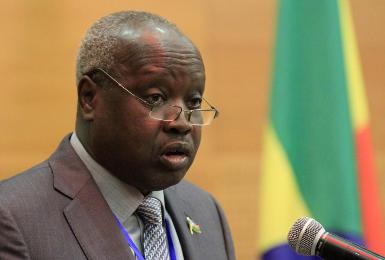S. Sudan rivals fail to agree on declaration principles for peace talks
March, 8, 2014 (JUBA) – South Sudanese rivals failed to reach consensus on the declaration of principle, which would be the basis of the ongoing negotiations, with the government delegation blaming its rebels and mediators over the deadlock.

“We went to the talks when we left Juba with opened minds and hearts to the venue of negotiations. We had the full authority of the president to bring peace because this is what our people want. We were therefore doing everything within our capacity and power to negotiate the way forward. But as you know, an aggrieved party always comes out with what it wants to be addressed, our delegation was hoping to receive from the other side issues they wanted to be discussed and then respond based on what we know as the government,” Nhial said.
“We wanted to hear from them the cause of what threw the country into crisis because they are the aggrieved party but that did not happen,” he added.
He could not, however, elaborate on what delayed caused the delays, although the country’s information minister Michael Makuei last week blamed the mediators for failing to present them with the proposal to be discussed by both warring parties.
Nhial attributed the failure to signing declaration of principles, which would form the basis of negotiation to a proposal by the mediators seeking inclusion of the seven former officials from the ruling party (SPLM) who were arrested last year for involvement in an alleged coup in the capital, Juba.
The seven were later released and are now being hosted by the Kenyan government.
“Talks have been adjourned for two weeks to allow the two sides go for consultation. They will resume on 20th march. We were expecting in the first round to agree on the framework and the agenda of the negotiation but that did not happen because of the issue of the seven officials the mediators wanted to participate in the talks as a third block. You know I came back here for consultation with our leadership and leaders from other political parties to gather views about the proposal of the mediators to include these officials,” said Nhial.
“The outcome of these consultations was that talks should be between the two parties. We returned to Addis [Ababa] and gave the views we collected from these consultations in draft position paper to the mediators, who brought it up in the last meeting but the other side rejected it,” he added.
CEASEFIRE ISSUE
The other contentious issue, South Sudan’s lead negotiator said, was the signing of a permanent ceasefire agreement between the two warring parties. He instead accused members of the opposition forces of protesting against the mediator’s inclusion of some areas within the joint verification and monitoring mechanism.
The lead negotiator, however, said no nation can prosper without embracing harmony.
“It is very important to note that no nation thrives on victory of factions, but through ultimate reconciliation, which is what comrade president had initiated. He is committed to ending this conflict,” he said, adding that now was the moment to turn difficult times into opportunities instead of the current hype in ethnic inclination that seek to promote cleavages that are self-destructive.
The lead negotiator added that freedom brought by liberation struggle defined the type of system of governance they want.
DENOUNCES VIOLENCES
“It is one of our values in the SPLM to thrive on a triple foundation of liberty, justice and common decency. That is why it is said that democracy is rather a contest of ideas and reasons and not a contest for survival where politicians take it out violently among themselves in the name of democracy. Only liberty, justice and common decency are true elements of democracy,” Nhial said.
He advised South Sudanese to desist from violence in the name of freedom that comes with democracy.
“I believe this situation is not beyond redemption and so, should not be allowed to set the national agenda of reconsideration of our unity and nationhood,” he stressed.
(ST)
